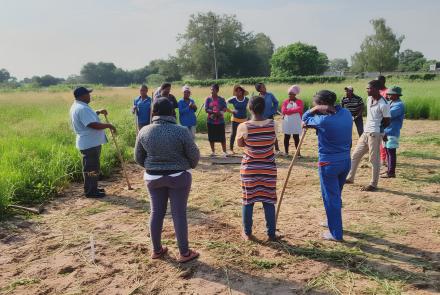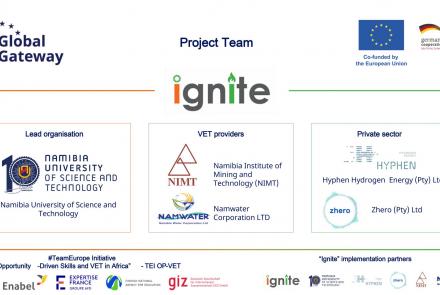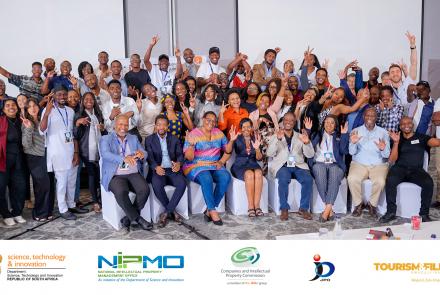Demo site turns farm waste into energy, soil health and income
... focus on Rietfontein Satellite Campus
Several key installations at the DIVAGRI demonstration site at the Rietfontein NUST Satellite Campus have been completed. The site now showcases practical, small-scale technologies designed to improve yields, cut input costs, and restore land for rural communities. DIVAGRI stands for Revenue diversification pathways in Africa through bio-based and circular agricultural innovations.
Innovations Driving the Initiative
Essential to the initiative are several innovations: a biogas digester that converts cow dung and kitchen scraps into clean cooking gas; two Top-Lit Updraft biochar kilns that turn encroacher bush into soil-boosting biochar; a self-regulating, low energy, clay-based low-pressure irrigation (SLECI) pilot running alongside drip irrigation for comparison; a fenced ethnobotanical plot of fruit and medicinal species; and a refurbished mushroom biorefinery now in early production. These components together form the backbone of the project’s sustainable bio-based technology approach.
Research and Collaboration
Dr Veikko Shalimba, Associate Dean from the School of Engineering and DIVAGRI project’s principal investigator, together with a team of researchers from NUST, worked closely with local farmers to collect data from August 2025. “This is practical, small-scale technology that turns waste into value gas for cooking, biochar for soils, and mushrooms for market,” Dr Shalimba said.
Training sessions for farmers and students covered safe biogas use, biochar production, irrigation setup, and basic mushroom cultivation. A few challenges in the pilot and demonstration stages were identified, respectively. The biogas digester works optimally in hot climates and is unproductive in colder months. Plant loss due to frost, low water pressure, and plant theft are additional challenges which are mitigated by planting season compatible frost resilient crops, early-morning irrigation, water pressure management options, and strengthened field security systems around the garden,” he elaborated.
The project, through Farm Ombe, one of the project’s demonstration sites in Otjozondjupa region, hosted young small-scale farmers for practical training on Biochar and Agritourism. Training is part of the project information dissemination and capacity building responsibilities, to demonstrate how bio-based circular practices can be adopted on small farms to build resilience and new income streams. The session was co-presented by DIVAGRI partners, NUST and Stellenbosch University (SU). Training sessions on Mushrooms and Biogas digester will be advertised for increased public participation at Rietfontein campus.
Dr Jerome Boys, Acting Head of the Rietfontein Satellite Campus, praised the initiative, noting that it highlights and amplifies the important work taking place at the campus. “With institutional support, the Department of Agriculture and DIVAGRI project are positioned to effect public participation that can snowball into changed narrative for rural livelihoods”.





